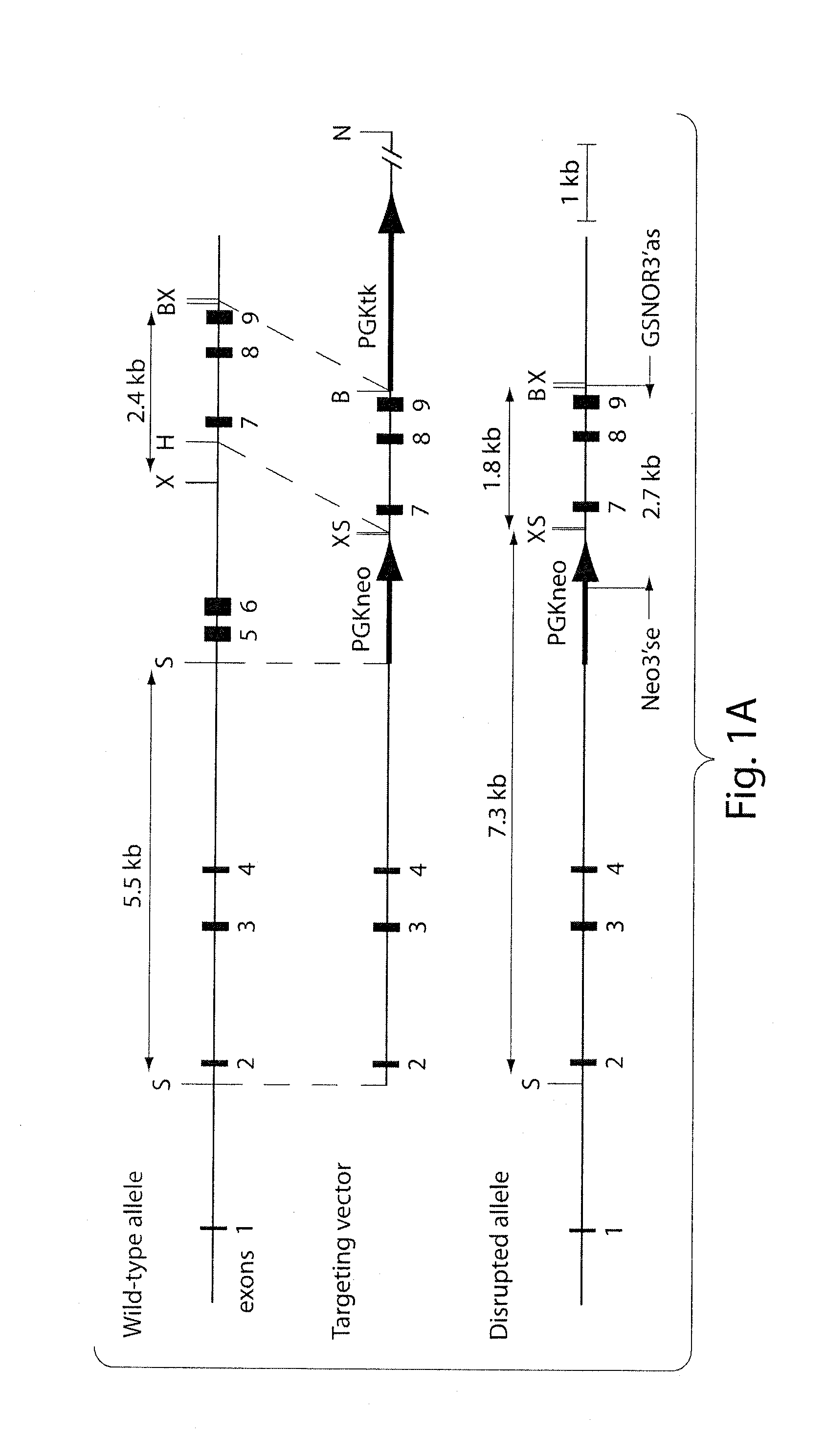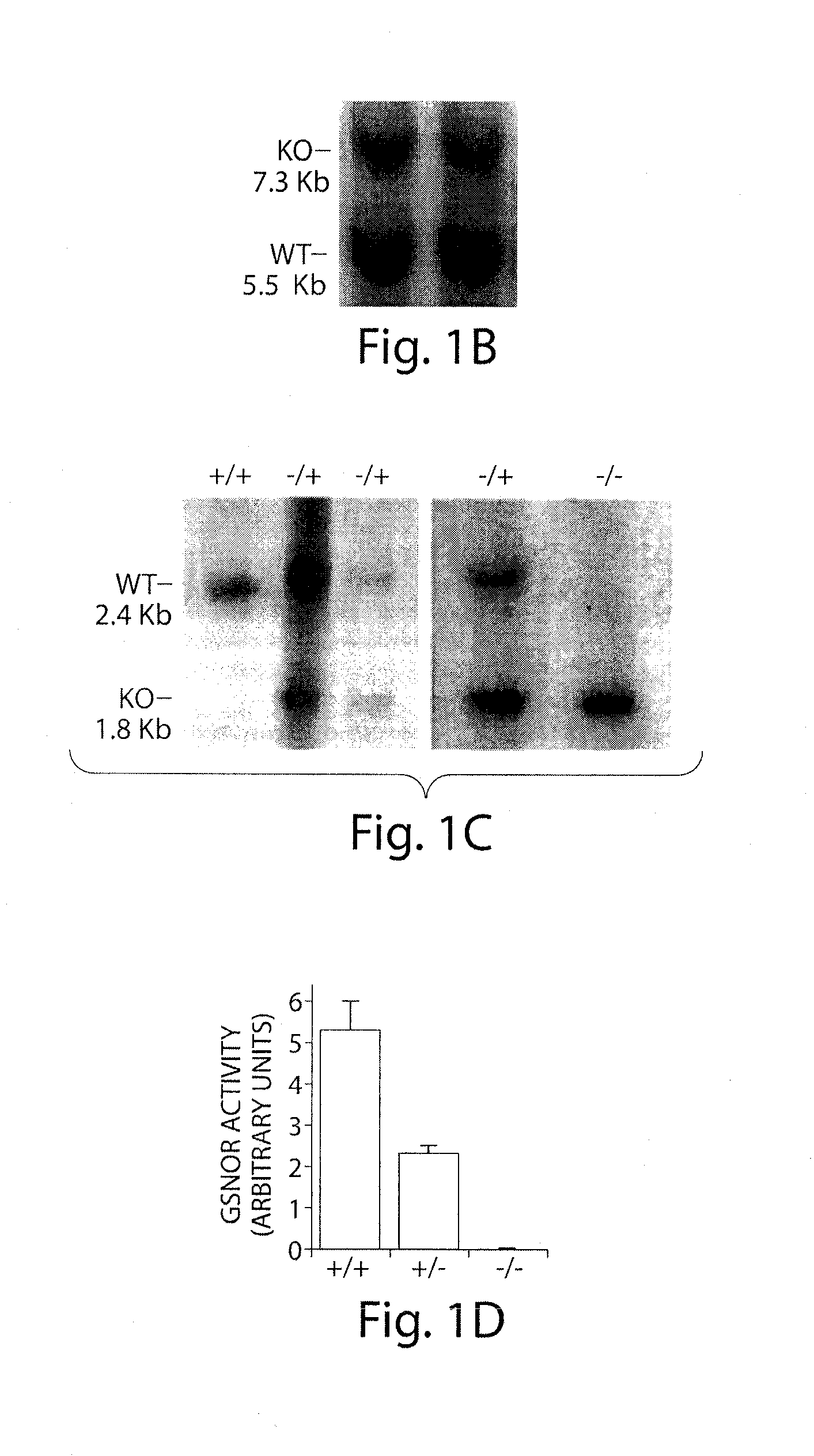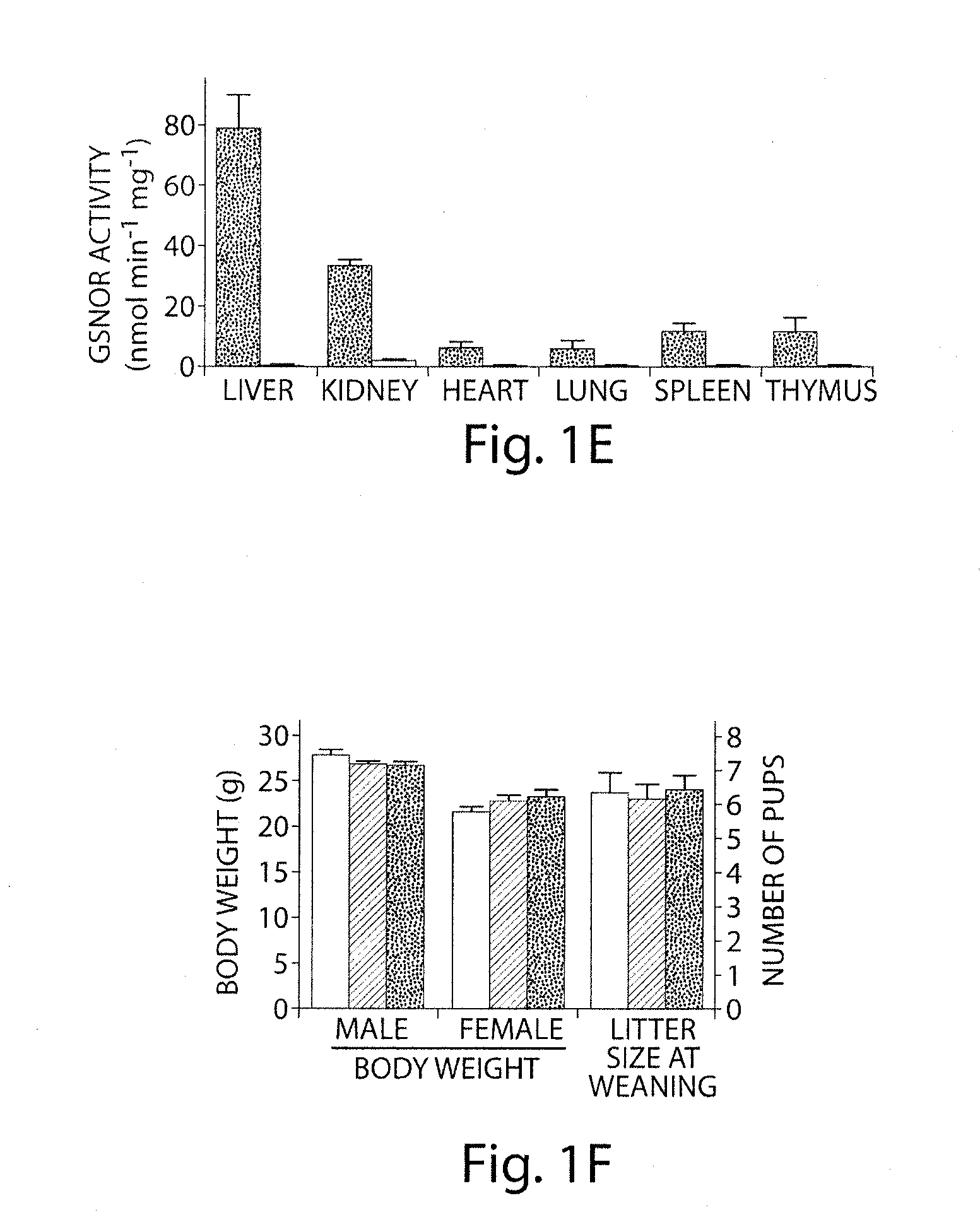Compositions and methods for modulating s-nitrosogluthione reductase
a technology of s-nitrosogluthione reductase and s-nitrosogluthione, which is applied in the direction of oxidoreductases, peptide/protein ingredients, dna/rna fragmentation, etc., can solve the problems of inos deficiency actually increasing mortality, investigators lack biochemical or genetic means to distinguish in vivo activity, and inos bioactivity is not well understood. , to achieve the effect o
- Summary
- Abstract
- Description
- Claims
- Application Information
AI Technical Summary
Benefits of technology
Problems solved by technology
Method used
Image
Examples
example 1
Experimental Procedures
[0151]Construction of a GSNOR Targeting Vector
[0152]For the disclosed experimental procedures, results, and discussion, see also Liu et al., 2004, Cell 116:617-628, which is incorporated herein by reference in its entirety. For the primers depicted herein, “se” indicates sense strand; “as” indicates antisense strand. A bacterial artificial chromosome (BAC) library derived from genomic DNA of mouse strain 129sv / CJ7 (Invitrogen) was screened for the GSNOR gene by PCR with primers from exon 8 (MoADH1001se, 5′-gatggaagagtgtggagagtg; SEQ ID NO:1) and exon 9 (MoADH1290as, 5′-cagtctcgattatgcacattcc; SEQ ID NO:2) (Foglio and Duester, 1996). Two BAC clones were identified (36c24 and 91m09), and subjected to restriction mapping and Southern blot analysis with probes ex8-9 and ex2-3. The probes were generated from a mouse ADH III cDNA clone (ATCC, GenBank accession number AA008355) by PCR with primer pairs for exons 8-9 (MoADH1001se, MoADH1290as) and exons 2-3 (MoADH52se...
example 2
Results
[0177]Generation of GSNOR− / − Mice
[0178]The GSNOR gene includes nine exons (Foglio and Duester, 1996); exons 5 and 6 encode most of the coenzyme-binding domain of GSNOR (Yang et al., 1997). A targeting vector was constructed with GSNOR genomic DNA. This was used to replace exons 5 and 6 with a neomycin resistance gene (neo) through homologous recombination in mouse (129sv) embryonic stem (ES) cells (FIG. 1A). Homologous recombination on both sides flanking the targeted region was confirmed in four ES clones. Southern blot analyses were performed with probes specific to exons 2-3 and exons 8-9, respectively. As further confirmation, PCR was performed to specifically identify the disrupted allele (FIG. 1B).
[0179]Two mouse lines with the targeted disruption were independently generated from two of the ES clones (FIG. 1C). Southern hybridization with a probe specific to exons 8-9 showed that GSNOR− / − mice included only a single mutant (1.8 kb) fragment that resulted from recombina...
example 3
Discussion
[0203]The disclosed experiments demonstrate that: (1) S-nitrosothiols play an essential role in NO biology, influencing blood pressure and related homeostatic functions, and contributing to the pathogenesis of endotoxic / septic shock; (2) NO bioactivity is regulated not only at the level of synthesis (i.e., NOS) but also by degradation, in particular by GSNOR; (3) turnover of GSNO influences the level of whole cell S-nitrosylation; (4) accumulation of SNOs can produce a stress on the mammalian organism that influences survival, and in particular, nitrosative stress that is identified with GSNO is implicated in disease pathogenesis; (5) GSNOR protects mice from excessive declines in blood pressure under anesthesia, and from tissue injury following endotoxemia; (6) the systems affected most by GSNOR deficiency include the liver, immune system and cardiovascular system. These results signal a fundamental change for the current paradigm of NO biology, which centers on the activ...
PUM
 Login to View More
Login to View More Abstract
Description
Claims
Application Information
 Login to View More
Login to View More - R&D
- Intellectual Property
- Life Sciences
- Materials
- Tech Scout
- Unparalleled Data Quality
- Higher Quality Content
- 60% Fewer Hallucinations
Browse by: Latest US Patents, China's latest patents, Technical Efficacy Thesaurus, Application Domain, Technology Topic, Popular Technical Reports.
© 2025 PatSnap. All rights reserved.Legal|Privacy policy|Modern Slavery Act Transparency Statement|Sitemap|About US| Contact US: help@patsnap.com



